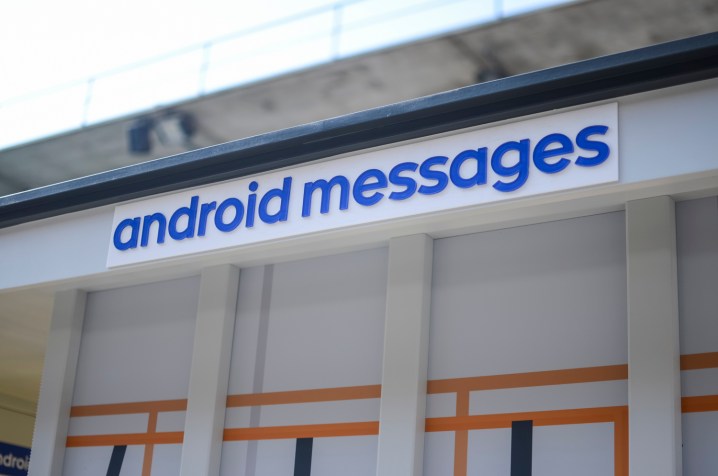
Google’s effort to come to grips with Android’s messaging problem has arrived via “Chat,” a consumer-friendly name for the Rich Communication Services (RCS) messaging standard.
RCS, which we’ve looked at before, is an evolution of SMS. It introduces many features that have previously been unavailable through texting: Better group messaging, read receipts, typing indicators, animated stickers, and more — things that have long-been available on Internet Protocol apps like Facebook Messenger, WhatsApp, and Apple’s iMessage. Chat isn’t a new app from Google, rather the technology based on the Universal Profile for RCS. It will be supported in Android Messages, the default texting app on many Android phones.
Chat, first reported by The Verge, is a carrier service. That means Google worked with more than 50 carriers around the world and almost a dozen manufacturers to support the standard. Sent messages will be inked to your data plan instead of your SMS plan, and charges — set by the carrier — should be minimal.
The idea is for Chat to offer modern messaging features to the default texting app on all Android phones. So it doesn’t matter if you use AT&T, Verizon, or Samsung’s messaging app, you’ll still be able to see read receipts, typing indicators, and more with someone using Android Messages. All these messaging apps will be on the same platform, so everyone will (hopefully) have a modern, seamless experience.
Google is so serious about moving ahead with Chat, that it has suspended development of Allo.
Google expects the Chat standard to be switched on for most Android users some time this year, though the precise timing will be decided by each carrier and region. It already works between Sprint users, and T-Mobile said it will flip the switch on in the second quarter of this year.
If you send a message to someone without Chat enabled, or a non-Android user, the message will be sent as an SMS. The sooner carriers turn on Chat, the better for everyone. It won’t work with iPhone users until Apple supports Chat. At the moment, The Verge reports Google and a group of mobile operators are in talks with the Cupertino company to support the platform.
Google is so serious about moving ahead with Chat, that it has suspended development of Allo, a messaging app it launched two years ago. The team is now focusing exclusively on Android Messages. The default texting app will get a web version very soon, so you can send and receive messages from a desktop. Then expect the Android Messages app to gain a host of features, including Smart Replies, Google Assistant, Google Photos integration, and more.
The drawback is Chat or Android Messages won’t be end-to-end encrypted, therefore it won’t be as secure as iMessage or Signal.
Google’s interest in persuading carriers to turn on Chat is obvious. Its Allo messaging app has failed to build a user base that can compete with the likes of Facebook Messenger and WhatsApp, so the company has switched the team to focus on incorporating the app’s best features into Google’s Android Messages, which is preinstalled on most Android devices and has more than 100 million active monthly users.
Anil Sabharwal, the executive leading the team and whose track record includes Google Photos, points out that Android Messages is where all the users are, so it makes perfect sense to divert its efforts toward the app.
The bottom line is that Chat hopes to banish the limitations of SMS to give users a much more enjoyable messaging experience, with support for a wide range of features at little to no cost. What does that mean for Hangouts? Google intends to turn it exclusively into a corporate messaging service — a competitor to Slack — and it’s likely that Allo will be put on the chopping block in the future.
